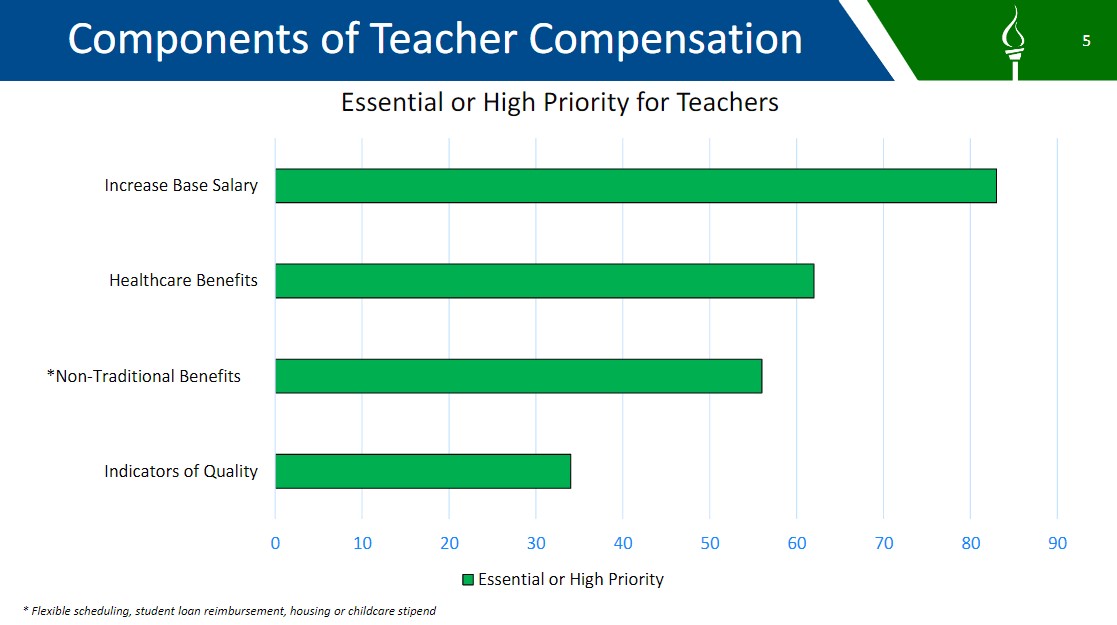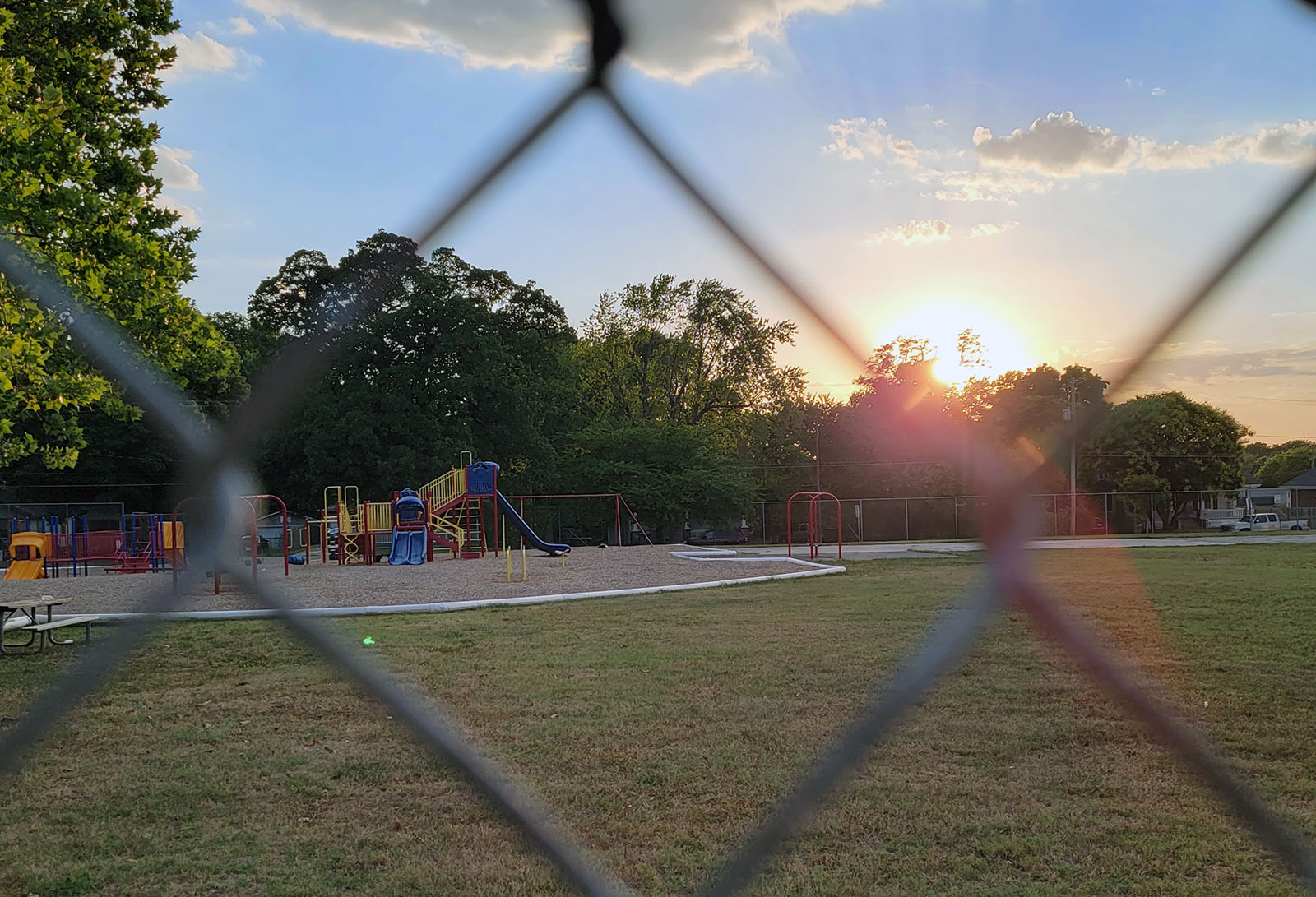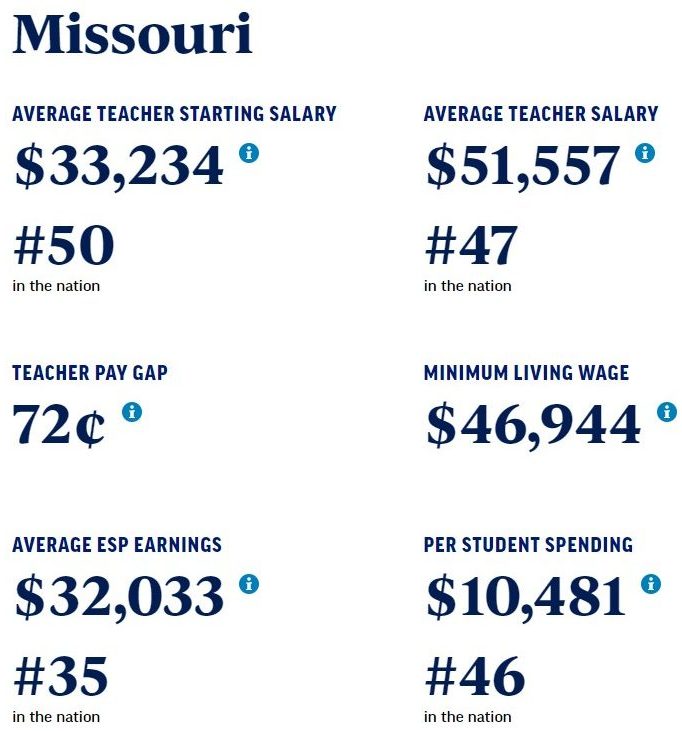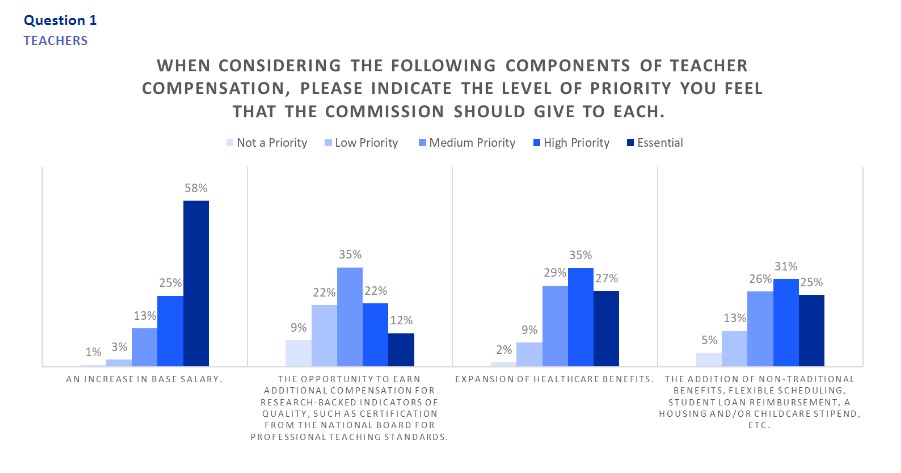On Sept. 12, a commission tasked with addressing the state's teacher shortage completed their final meeting and compiled a draft of nine ways that changes to Missouri policy could improve teacher retention and recruitment.
At the top of the list is an immediate need to lock in better starting pay for teachers in a state that, up until this school year, ranked dead last in the nation.
The commission — officially called the Missouri Board of Education’s Teacher Recruitment and Retention Blue Ribbon Commission — also recommends pay increases for experienced teachers, two additional wellness days off for all teachers, increased funding for tuition assistance programs and statewide incentives for districts to implement or expand team teaching opportunities, among its nine suggestions.
Down the road, the commission would also like to clear the path for districts to offer higher pay for teachers of high-need school subjects or in high-need geographic areas and reward teachers who earn national board certification, which would require a constitutional amendment.

The group’s chairman, Mark Walker of Springfield, said the nine recommendations address some of the major issues commission members believed were driving educators out of the profession or keeping people from becoming teachers in the first place.
Walker is the CEO and chairman of TransLand, and one of 10 state business leaders who were part of the commission.
Going into the process, which began in June, Walker said he and other commission members recognized that Missouri teachers are underpaid and under-resourced.
They lack support systems, which made it harder to be successful, he said. According to a 2021 DESE report, 40 percent of new teachers were leaving the profession four years into their careers and over half were gone by the sixth year.
A hearing centered around feedback from educators, combined with a survey of Missouri teachers, principals and superintendents presented to the commission last month, affirmed many of the commission’s early thoughts, Walker said. And it enlightened them about other high-priority needs for educators.
In forming the commission, the state board sought to bring in business leaders from across Missouri to address the teacher workforce crisis.

Education commission unique experience for business leaders on it
Walker said crafting a list of recommendations to present to the state board — and then on to legislators — was a different process than what business leaders on the commission are familiar with in their industries’ workforce issues.
“The biggest difference is in business, we don't have to go to an elected body to get their approval to do this,” Walker said. “We can make a decision ourselves.”
The business leaders were joined on the commission roster by four legislators, three state board of education members, two educators, a local school board member and staff from the governor’s office and the Department of Elementary and Secondary Education.
When the commission was announced, some said the panel was too business leader-centric.
The Missouri State Teachers’ Association said in a news release that “the voices of Missouri’s educators will be greatly reduced with the composition of the commission’s actual decision makers.” The commission did receive input in August from educators during a live hearing, and they also heard from over a fifth of the state’s teachers in the form of a DESE survey that asked educators to prioritize professional incentives and opportunities that would make the job better. The survey was filled out by 15,169 teachers, 916 principals and 357 district superintendents.

Asked why he was interested in serving on the commission, Walker first responded with a more direct form of the same question.
“Why does a trucking guy do this stuff, right?” he said.
His answer is that he’s been invested in education advancement efforts for decades. Before becoming CEO of TransLand in 2013, Walker was the CEO of United Way Silicon Valley. In that role and others he’s held, he’s worked closely with school districts and nonprofits that provide support to school districts. He’s on the Care to Learn board, and served on the Partners in School Innovation board in San Francisco. Walker said his efforts in educational philanthropy have been centered around helping students receive needed support through their school years. Because his background includes both business and education endeavors, he said he felt compelled to throw his hat in the ring to participate on the commission.
“And then they said, would you mind chairing this?” he said.
Walker said his role as the chair primarily involved helping to synthesize ideas that various members of the commission shared. Four meetings led to a set of nine total recommendations to present to the Missouri Board of Education in October. They’re split into immediate, short-term and long-term categories, and Walker said the recommendations aren’t based on what the member think could get passed, but rather what they think could get results.
“Each of these were based on what we thought were the right thing to do to improve student outcomes in Missouri, and improve the recruiting and retention of teachers, period,” Walker said. “Did we get some sage advice from our elected officials in the room? Absolutely. We didn't have our heads in the sand on any of these things. But absolutely our charge was not to come up with recommendations that we thought would pass muster in the General Assembly, it was, ‘What's the right thing to do.'”

Top of the list – continuing to boost teacher pay across Missouri
This year, the Missouri General Assembly approved an increase in teacher starting pay across the state from $25,000 — the lowest in the nation — to $38,000. The increase was recommended by Gov. Mike Parson, and included an agreement to split costs of pay increases 70-30 between the state and districts that were not offering starting pay above that mark. (The state’s average starting pay — $33,234 — was also recently ranked 50th in the U.S. In Springfield, starting pay is $41,544.)
The pay increase, however, is a one-year-only offering. Walker said he learned on the commission that some districts chose not to participate in the matching program, since its continuation was not guaranteed. The commission’s top immediate priority, Walker said, was to recommend that the uncertainty be addressed.

“Our proposal is to fully fund $38,000,” he said. “And it would require each school district to have to pay $38,000, and if they couldn't afford it, then they could apply for funds to supplement that.”
Walker said the overall annual financial commitment would be in the $30 million range. DESE’s most recent annual budget was about $10 billion.
“Perhaps not huge in the whole scheme of things, but very, very important to start,” he said.
Other immediate recommendations included prioritized funding of the state’s Career Ladder program, which was resurrected this year with $37 million dedicated to it. The program currently provides financial incentives to teachers with five years or more experience who participate in extracurricular activities on their campus, like tutoring or coaching. Walker said the commission recommended allowing teachers with two years or more experience to take advantage of the Career Ladder.
Along with that, the commission recommends immediately expanding “Grow Your Own” programs to build teacher certification pathways for paraprofessionals, non-instructional school staff and others with STEM or other relevant professional backgrounds to help them become teachers through alternative processes than going back to school. It was the top method that teachers selected when asked to pick among programs and advertising campaigns that would best bring new recruits into the teaching profession.
Short-term goals include addressing wellness concerns, pay disparity, improving teacher diversity
There are four short-term recommendations, and Walker said some developed after seeing teachers' survey results. At the top of the list is providing teachers with two additional wellness days off per year. Wellness days were the top non-traditional benefit prioritized by teachers who filled out the survey, with student loan reimbursements, housing stipends, child care stipends and six-month sabbaticals ranked below them. Principals and superintendents both ranked wellness days as the third priority, below student loan reimbursement and child care stipends.
“I think we are understanding a little bit more that the best performing teachers have the best support system,” Walker said. “They have the best pay. They have time to plan and to think and for personal wellness check-ins if need be.”
Along with the immediate need to increase starting pay, the commission determined that increasing pay at all levels of teaching experience is important in Missouri. At $51,544, the state ranks lower than any of the average annual teacher salaries in the eight states that border Missouri, and close to the bottom nationally.
“Even in the largest districts, there may be instances where teachers are paid below market rate,” Walker said. “So how do we look at the years of college training that it takes, the level of expertise, and what would a market rate salary look like? And how do we create that salary so that students will want to come into this field? And where teachers will want to stay beyond a three- to five-year timeframe. We would have to create a fund that would support school districts as they look to solve that problem.”
Walker described that as a “big ticket item.” The commission learned that for every $1,000 you raise minimum teacher salaries across Missouri, you’ll need roughly $1.2 million in funding.
Another short-term recommendation is providing more funding for and promotion of the state’s Urban Flight and Rural Needs scholarship program, which covers one year of in-state tuition for students who go on to teach two years in schools with high at-risk populations. Scholarship recipients can have their four-year degrees fully funded if they commit to eight years at such a school. Walker said about $5.8 million would be needed for every 100 new scholarships in the program, and the commission wants to see more future teachers that that take advantage of the program.

“These types of tuition assistance programs do as much as any other initiative to help improve the number of teachers of color, and that that is one of the better indicators of success for students, if they can have teachers with more commonality,” Walker said.
Only 529 Black students and 246 Latino students were enrolled in Missouri teacher prep college programs in 2019, according to the U.S. Department of Education. The same year, 8,887 white students were enrolled in teacher prep programs across the state. About 26 percent of the state’s students are non-white. About 93 percent of Missouri public school teachers are white, compared to 69.6 percent of Missouri public school students.
In the long term, Walker said the commission recommends that Missouri legislators consider amending the constitution to change how salary supplements can be provided to teachers.
“Right now, in the state of Missouri, you cannot pay any type of different salary for hard-to-fill positions in hard-to-attract-teachers districts,” he said. “So you are at a very difficult recruiting point to get the talent you need. So we are going to recommend that we have some flexibility in that in Missouri.”
Nearly 49 percent of educators in the survey said implementing differentiated pay could lead them to leave their profession.
Kathy Steinhoff, who recently retired from the Columbia Public Schools District after teaching math for 34 years, told the commission during a feedback hearing that she had taken the survey and seen great promise in some of the options she was asked to prioritize. But each one of them requires more funding, said Steinhoff, who announced a run for the House District 46 seat after her retirement.
“I believe you as a commission were assigned an impossible task, since the biggest reason that this commission even exists is because Missouri has never really funded education properly and fully,” she said.

